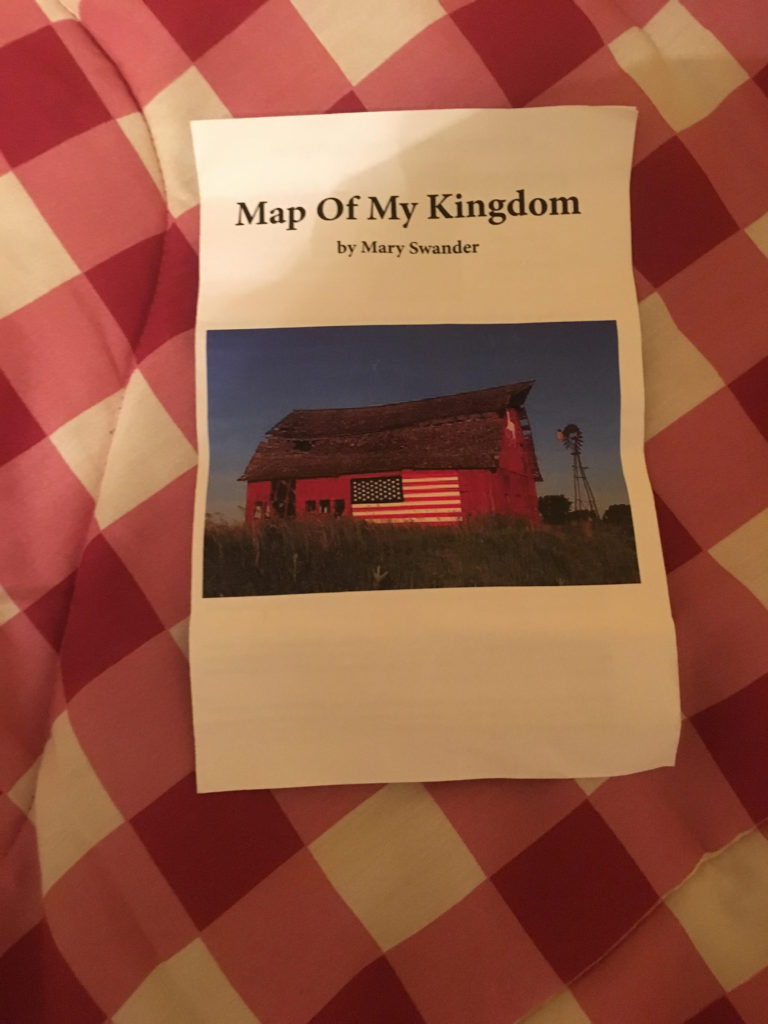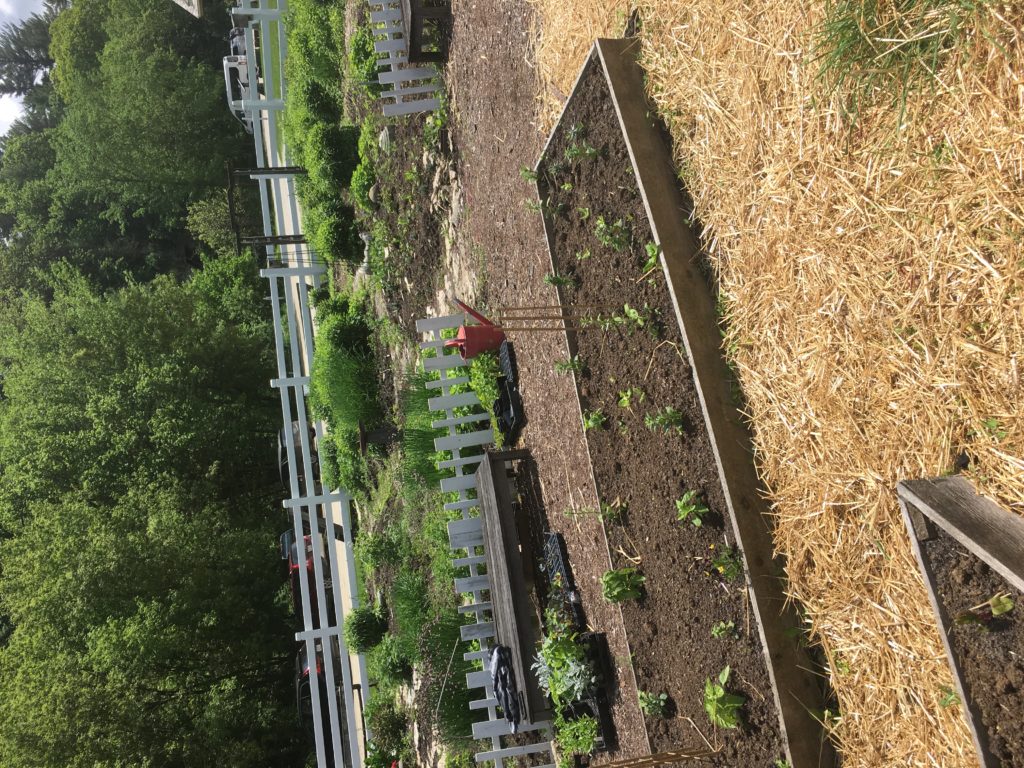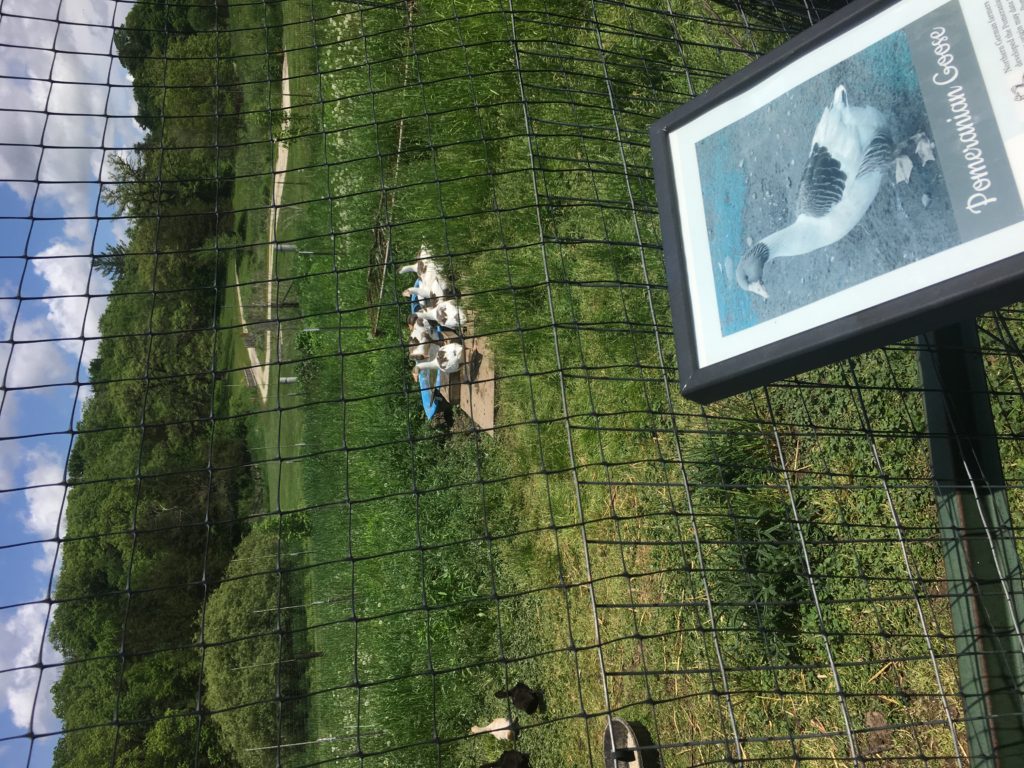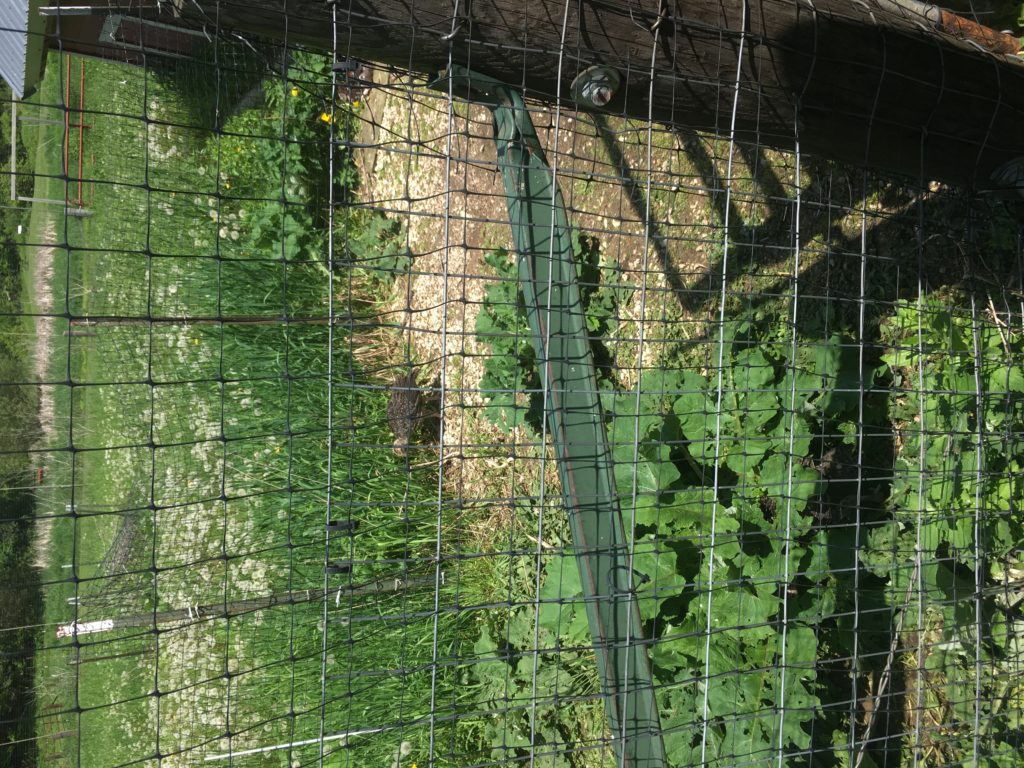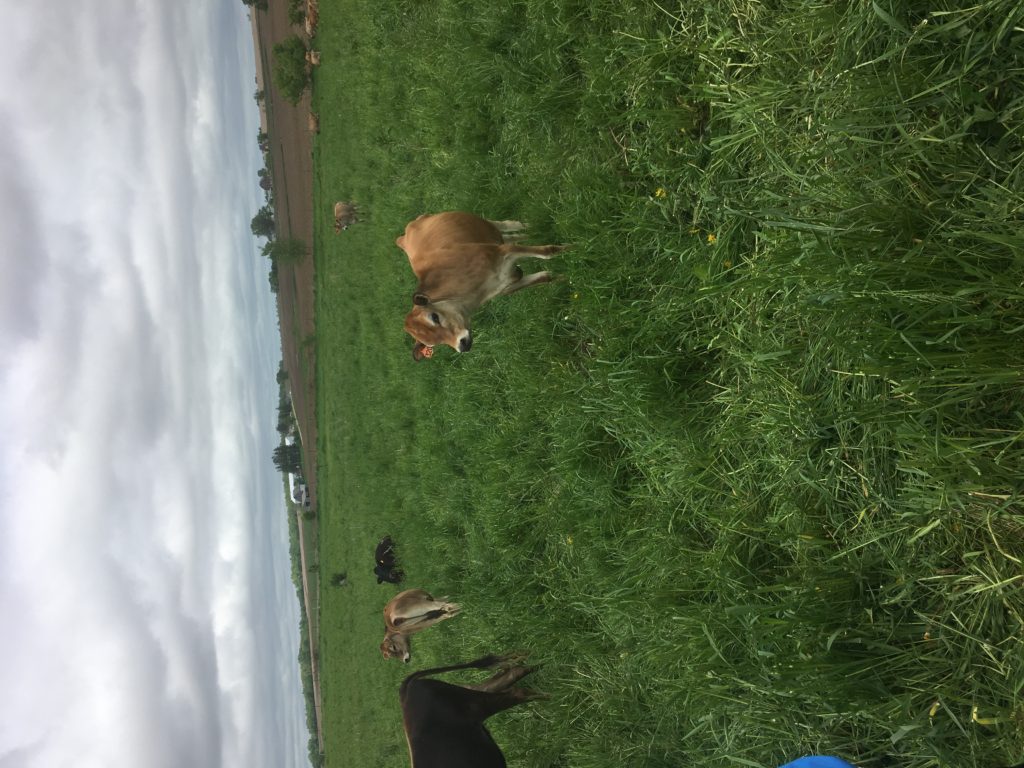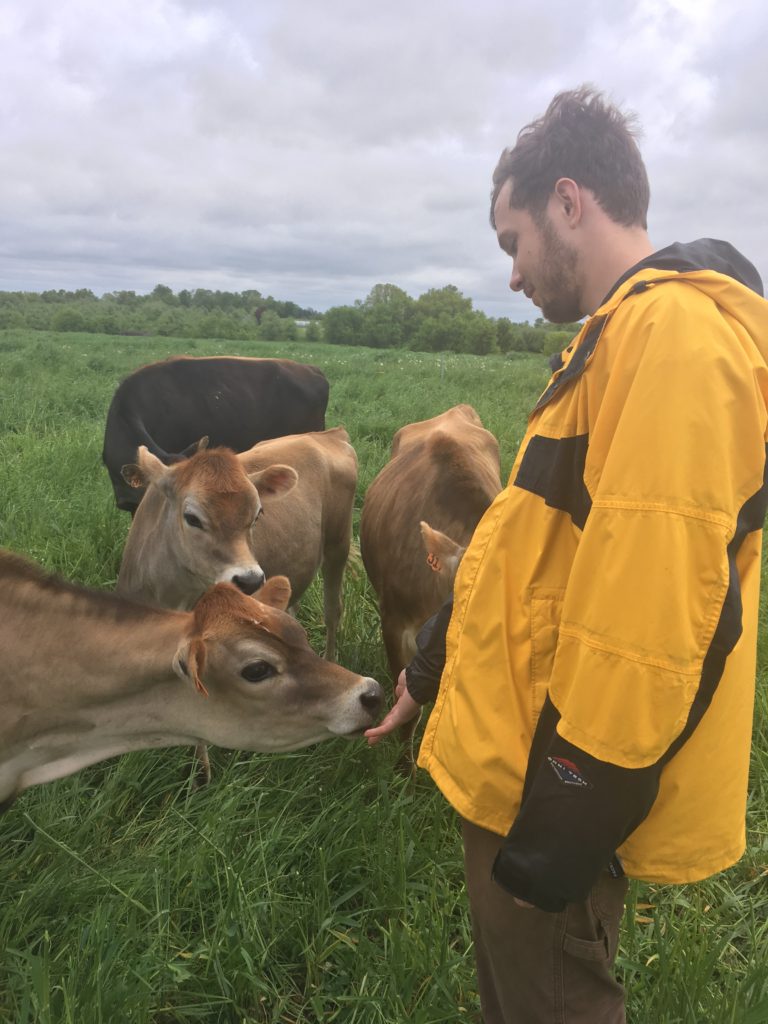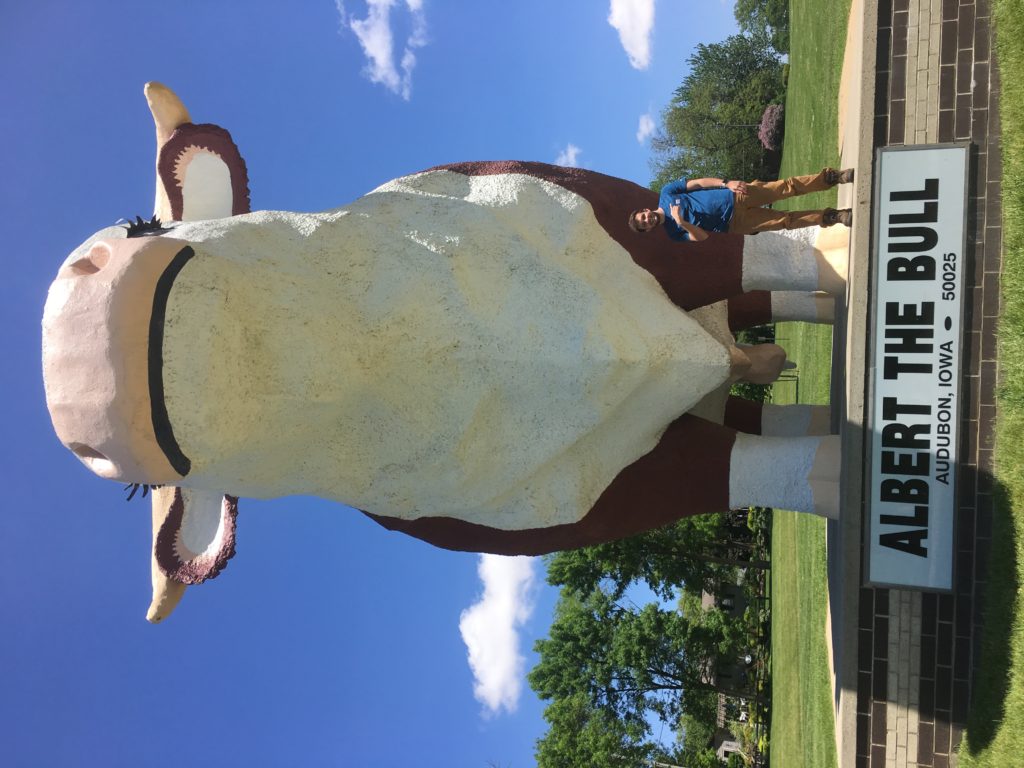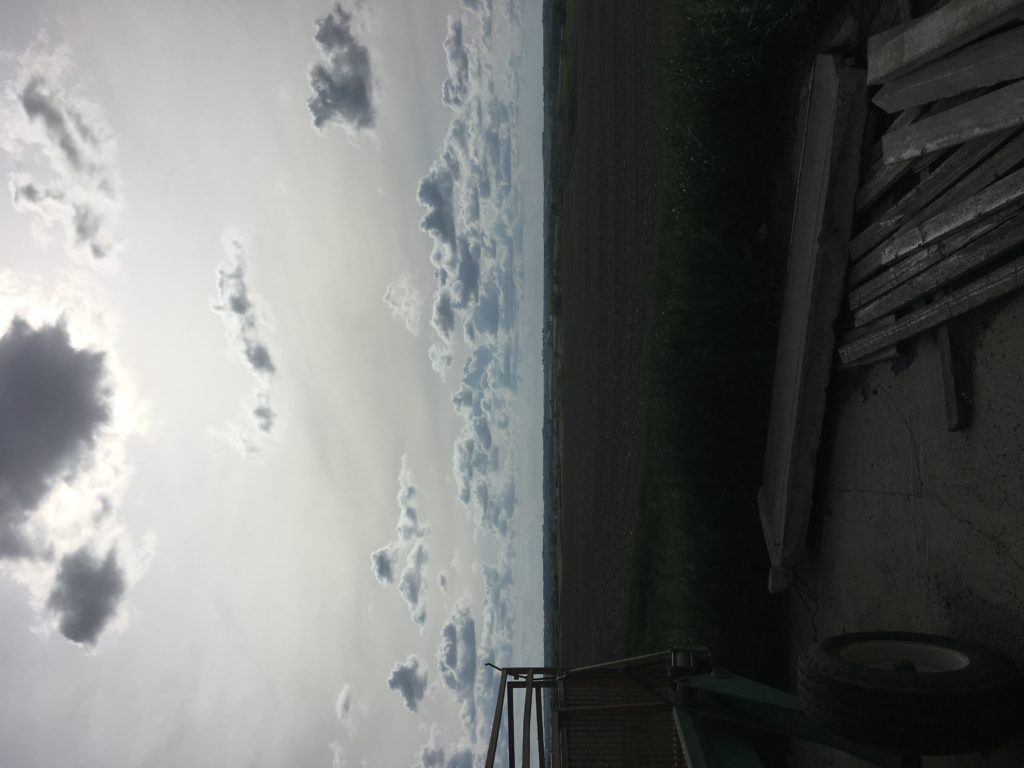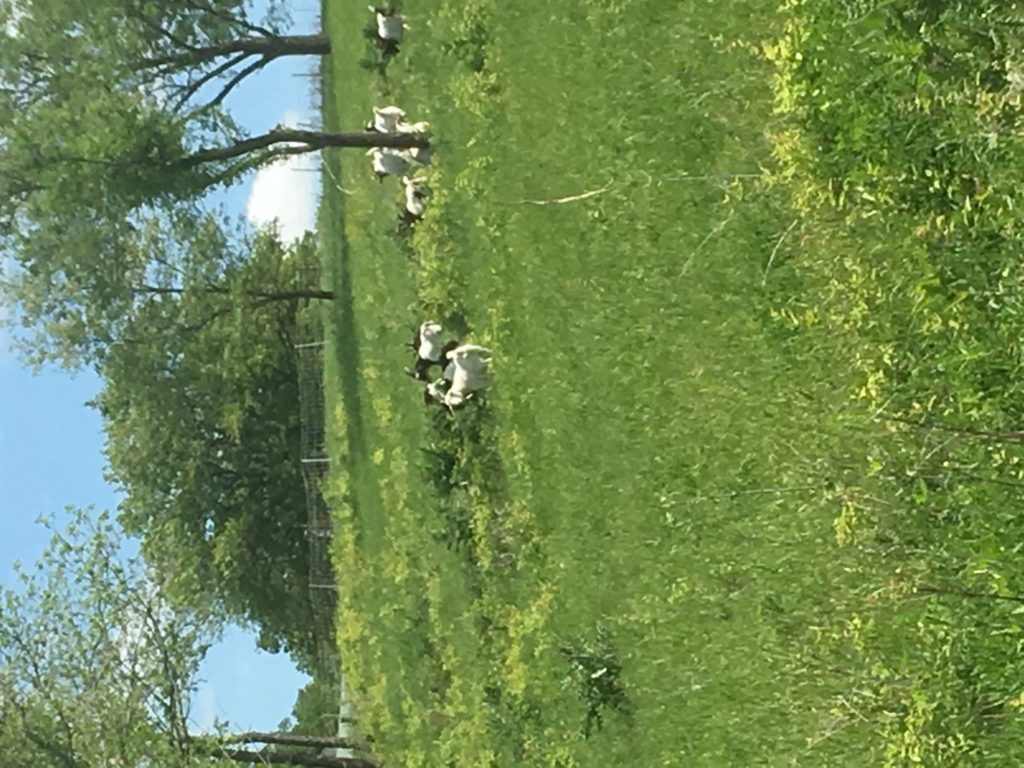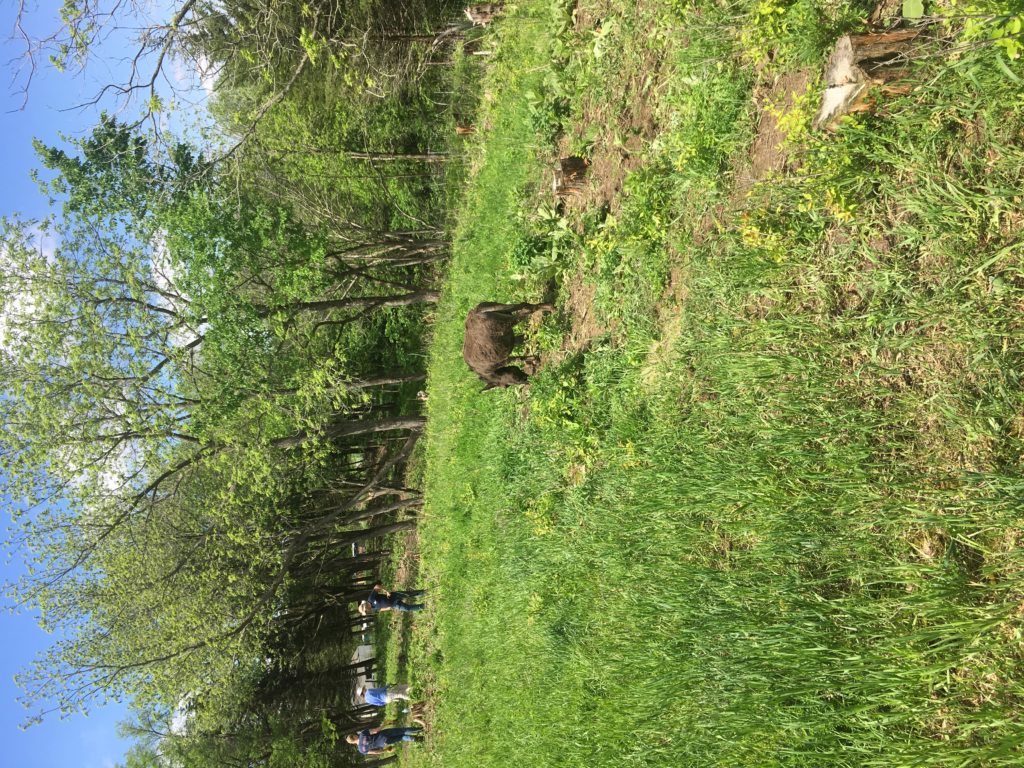June 5th, 2019
Over the past three weeks we’ve covered lots of ground. We traveled to Storm Lake in the northwest, Decorah in the northeast, and made a lot of stops in between. We examined agricultural practices that can damage, restore, and sustain the environment. We discussed conventional, sustainable, and precision agricultural production methods and the controversies they prompt. We learned Iowa’s state facts and read books and articles discussing topics from immigration to pesticide drift, and the politics of obesity to farm subsidies and trade tariffs. We worked on farms and spoke directly to farmers; we talked to environmental advocates, agriculture researchers, farm bureau representatives, Ag policy experts, and even a seed historian; we met the Poet Laureate of Iowa, a member of the Iowa House of Representatives, and a Pulitzer Prize winner; we herded cows, bottle-fed calves, made cheese, pulled weeds, and artificially inseminated sows…a lot of cutting-edge stuff is happening in Iowa.
Aside from my first-hand encounter with manure, one memorable experience for me was being able to see various types of confined animal feeding operations (CAFOs) at Dennis Liljedahl’s farm, Brent Friest’s farm, and Gary and Clint’s Welsh’s organic farm. At the Liljedahl and Friest farms they used similar practices, both keeping their hogs in gestation crates with little space to move. The Welsh’s farm however, had their hogs outdoors in separate and open areas. Other key takeaways were working at and seeing multiple farms and organizations throughout the trip, especially the Meskwaki Settlement in Tama, the Whiterock Conservancy, and Seed Savers. At these different places, we learned about the various jobs they perform including pulling weeds, removing an invasive species (known as Dame’s Rocket), and spading out the omnipresent thistle. Also, discussions about water quality and pesticide drift stuck with me. In regards to water quality, many places, including Iowa Soybean Association, Agribusiness Association of Iowa, Iowa Environmental Council, and specifically Connie Mutel, a retired plant ecologist at University of Iowa, discussed the issue of nitrogen and phosphorous runoff from farms entering the Mississippi River and later the Gulf of Mexico causing dead zones or hypoxia, for example. After this trip, whenever I hear or read about the Gulf of Mexico, the terms “runoff and “dead zone” will pop into my head. We were also able to meet with Mary Skopec, also known as the “queen of the water,” at the Lakeside Laboratory. We performed water quality testing, measuring dissolved oxygen and nitrogen levels and also the water’s turbidity. This was especially fun for me, since it is an activity I am very familiar with, performing similar tests throughout my coursework as a sustainability science major. When discussing pesticide drift at Practical Farmers of Iowa, Mark Tintjer’s bee farm, and Grinnell Heritage Farm, we learned that products, such as dicamba, when applied can “drift” or spread from one farm one to another, killing crops and causing legal disputes. These are all places that deal with assisting farmers with pesticide drift problems, but also places that have been personally affected by such drift. Understanding the on-the-ground reality of pesticide drift is one example of how the Farm experience changed the way I think about food production. There is more to farming than just yields.
All in all, this Iowa journey has been a very enriching educational opportunity; loaded with information, experiences, and memories I will never forget. I am sure I will find my way back to the Hawkeye State at some point, but until then… peace out Iowa!

